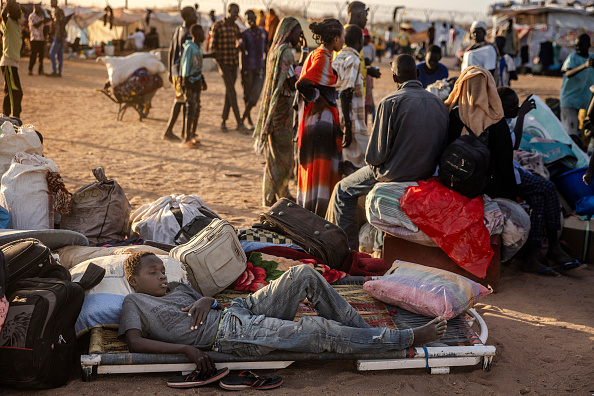The United Nations High Commissioner for Refugees, Filippo Grandi, has warned of the worsening humanitarian crisis in Sudan, calling for greater international attention, media coverage, and aid to address the catastrophe.
Speaking at the Munich Security Conference, Grandi described the conflict between the Sudanese Armed Forces and the Rapid Support Forces—raging since April 2023—as one of the world’s largest humanitarian disasters, yet one that remains severely underreported.
“I have been in so many meetings on Sudan, and every time, and rightly so, I hear this is the biggest humanitarian catastrophe on earth. And yet we hear very little about Sudan. We need to reflect on that,” he said.
He attributed the crisis’s lack of global awareness to restrictions on international media access, arguing that mobilising essential resources would be nearly impossible without visibility.

(Photo by LUIS TATO / AFP) (Photo by LUIS TATO/AFP via Getty Images)
Grandi stressed the need to shift from a military victory mindset to a peace-focused approach, echoing sentiments shared by Volker Perthes, former UN envoy to Sudan.
He called for a ceasefire linked to the upcoming Ramadan period, warning that millions of Sudanese refugees will not return home unless hostilities end.
Beyond Sudan’s borders, the crisis has placed immense strain on neighbouring Chad and South Sudan, which are struggling to accommodate an increasing influx of refugees.
Grandi noted that 3.5 million people have fled Sudan, in addition to the millions displaced internally.
He also warned that insufficient humanitarian aid could lead to secondary migration waves, particularly towards North Africa and Europe.
“If the humanitarian response continues to be very poor inside Sudan and outside, in terms of financial support, please, nobody should be surprised if we start seeing the secondary movement of people going to North Africa… and even trying to get to Europe,” he cautioned.
Grandi further addressed the impact of the freeze on USAID funds by the new US administration, which has complicated humanitarian efforts.
However, he acknowledged that waivers are being negotiated to ensure critical aid reaches Sudan.


